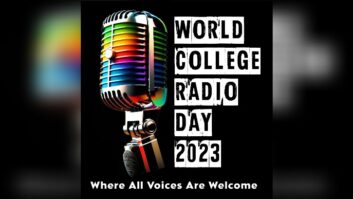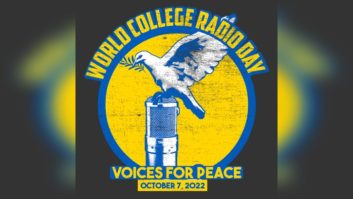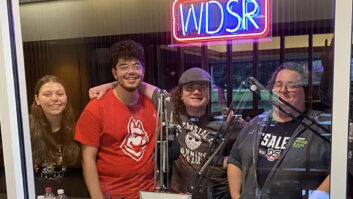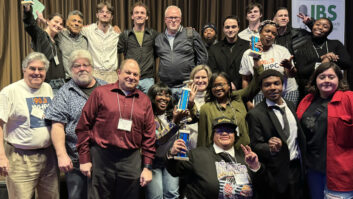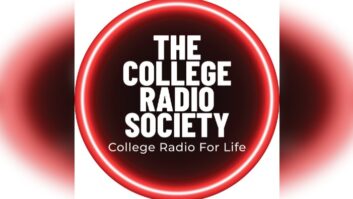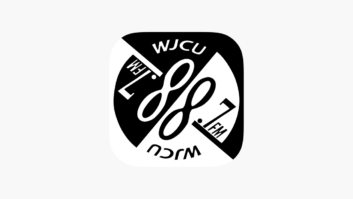Let’s say you run a radio station. Someone who works for an enemy organization, a person you view as hostile, comes into your lobby and demands to see your public file.
How do you respond? Do you comply? Do you delay? Do you threaten to have him arrested?
This is a situation easy to imagine but one that could cost your station money, as a college in North Carolina has discovered.
In a case involving two confrontational visits in 2005, the Enforcement Bureau of the Federal Communications Commission has upheld a penalty against Gaston College, licensee of WSGE(FM) in Dallas, N.C. — though the FCC has reduced the original fine by 20% to $8,000 based on the station’s history.
The incident brought to light tensions between Gaston College and Columbia Bible College over the station license.
The complaint was filed by J. Davidson Morrison, who described two visits to WSGE (see details below). When the FCC inquired into his complaint, Gaston’s lawyer said the man’s behavior during the first visit had been “hostile.” It also asked the commission to consider the history between the college and Morrison’s employer, Columbia Bible College.
Gaston argued that Columbia has been engaged in a “pattern of harassment and intimidation” by pursuing FCC proceedings and that the public file visits were motivated by Columbia’s attempts to acquire the station; Gaston alleged that the other school was attempting to misuse commission processes to force it to sell.
Gaston didn’t dispute that WSGE had violated the public file rules when Morrison visited but it pushed for an admonishment or fine reduction instead; Gaston called the $10,000 penalty excessive and argued that in similar cases the FCC had simply admonished violators. But the commission rejected its arguments. Notably, it stated, “We also find that we are not bound by, and decline to follow” certain past cases cited by Gaston College. “The Media Bureau has recently departed from earlier precedent and has imposed significant forfeitures for public file violations by noncommercial stations.”
The FCC reemphasized that requirements on noncoms are similar to those on commercial stations except for the actual content of the files. Enforcement Bureau Chief Michele Ellison further wrote: “We agree with the Media Bureau that public file violations merit strong enforcement.” Compliance is vitally important because it “safeguards the public’s ability to assess the station’s service and to meaningfully participate at the station’s renewal process.” The FCC also emphasized the importance of listeners as a source of information about possible violations. In other words, stations need to let visitors, even hostile visitors, see their files.
“The antagonism Gaston College describes between it and Columbia Bible College does not excuse Gaston College’s conduct,” the bureau ruled. Gaston’s case was undermined by aggravating factors — specifically, high-ranking officials of Gaston threatening to have the visitor arrested; the file being withheld on the first visit; the fact that two visits were required to obtain access; and that the visitor also had to ask for missing documents.
* * *
As one reads the FCC report, it’s easy to imagine the scene at the station and the tensions involved. Here’s how the FCC described the visits:
“According to the complainant, during his first visit on March 3, 2005, he asked to review the public inspection file, but was told by a station employee to come back another day,” the commission recounted.
“After the requestor informed the station employee that FCC rules require that the file must be made available on request during regular business hours, the employee directed him to a drawer containing some station documents, but the drawer did not contain the station’s public inspection file. Meanwhile, the station employee contacted the station’s general manager who, upon arrival, also directed the complainant to the same drawer. Shortly thereafter, the college’s vice president for finance and operations arrived and told the complainant that he could not look through the files without first making an appointment with Gaston College’s attorney.
“While still at the station, he was asked to take a call from Gaston College’s attorney, who directed him to leave the station and the college’s campus or he would be arrested. The complainant states that he left without viewing the public inspection file,” the FCC account continued.
“The complainant further alleges that he returned the next day and was told by the station’s general manager that he first needed an appointment with Gaston College’s attorney to view the public inspection file. Only after informing the general manager that such a policy was illegal was he permitted to review a public inspection file binder and a hanging folder.
“Upon review of the binder and hanging folder, he states that the complainant noticed that the FCC publication, ‘The Public and Broadcasting,’ a copy of which is required under the rules to be maintained, was omitted from the public inspection file. When he inquired about the absence of the publication, he was provided with a copy. He states that he also discovered that the required issues/programs list and equal employment opportunity (‘EEO’) report were also missing from the public inspection file, but were later provided after he inquired about them. He asserts that the issues/programs list was incomplete.”





